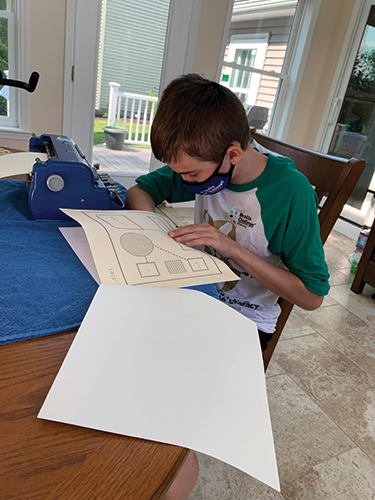AFB is committed to ensuring access to a safe and equitable educational experience for all students

AFB steadfastly believes that students who are blind or have low vision should have the same educational opportunities as their peers without disabilities.
Because of the COVID-19 pandemic, schools across the country have closed their doors, and most are working to transition to online or distance learning programs. However, these changes raise concerns about federal law as it relates to providing equitable educational opportunities for students with disabilities, as laid out in the Rehabilitation Act of 1973 and the Individuals with Disabilities Education Act (IDEA), a federal law that makes available a free and appropriate public education to children with disabilities and ensures access to special education and related services.
Blind and low vision students need access to general curricula, as well as to training in orientation and mobility, braille, adaptive technology, and daily living skills. Many of these students already face barriers related to low expectations and inaccessibility of classroom materials. Allowing blind and low vision students to fall behind their sighted peers creates another needless barrier to academic success.
On March 20, AFB submitted a letter, co-signed by many peer organizations in the field, to the Office of Special Education and Rehabilitative Services, asserting that students with disabilities must have access to the same opportunities as other students during this crisis. AFB also signed on to a letter with the American Council of the Blind to key leaders in the Senate and the House of Representatives, expressing concern about legislation that would allow the Department of Education to waive protections for students with disabilities. That letter called on Congress to fully fund the IDEA and thereby provide teachers with significantly more resources with which to educate students with disabilities.
And, along with several other organizations in the blindness field invested in the education of students with visual impairments, AFB conducted a survey called “Access and Engagement: Examining the Impact of COVID-19 on Students Birth-21 with Visual Impairments, Their Families, and Professionals in the United States and Canada,” which gathered information from family members, teachers of the visually impaired, and orientation and mobility instructors to better understand how COVID-19 is affecting the education of children who are blind or have low vision, from infancy through age 21. The study will allow organizations in the field to provide research-based data and recommendations to legislators and schools.